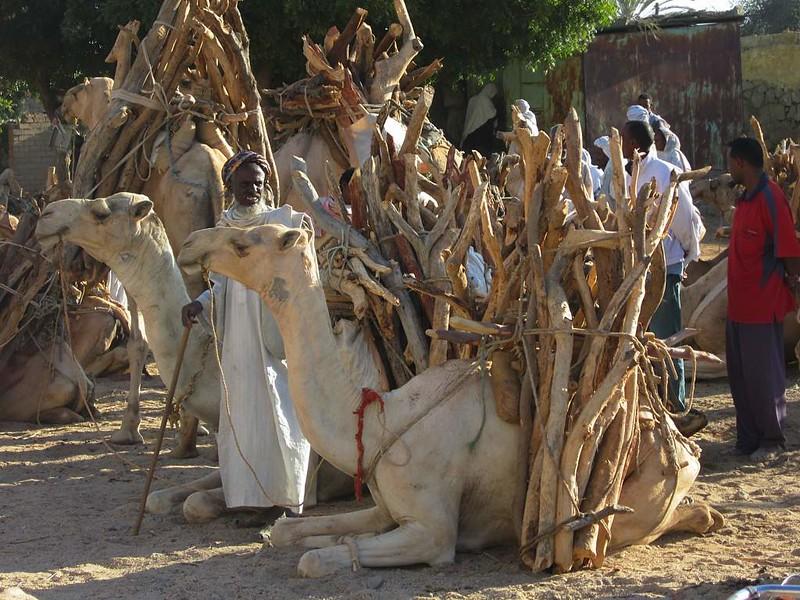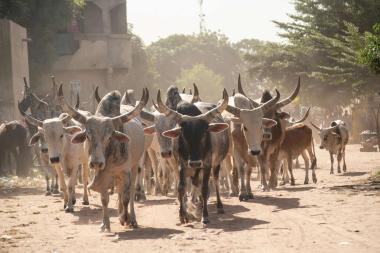Blog
Planting the seeds of resilience across Africa’s drylands
As we mark World Day to Combat Desertification and Drought on June 17th, SPARC highlights its work to build more resilient and sustainable livelihoods in Africa’s drylands.
Publisher Cowater International

Every Monday dozens of camels bring firewood to the market on a dry riverbed in Keren, Eritrea
Credit Image by David Stanley - CC BY 2.0
The drylands of Africa are experiencing a series of compounded development challenges, including high levels of poverty, precarious livelihoods, protracted conflicts, environmental stress and weak governance. Moreover, the increasing chances of drought and desertification associated with climate change are adding additional stress on rangelands and forests in regions such as the Sahel. Despite these challenges, the drylands are an important ecosystem for millions of pastoralists and agro-pastoralists. Recent initiatives, such as the Rangeland Atlas, published by Cowater International’s partner ILRI, note the value of rangelands and the importance of livelihood activities, such as pastoralism, as a way out of poverty in water stressed lands.
In recognition of the World Day to Combat Desertification and Drought, marked on June 17th, SPARC member organisation Cowater International is highlighting its global footprint in building more resilient and sustainable livelihoods in Africa’s drylands.
In Niger, one of the driest countries in the Sahel, 80 percent of livelihoods are dependent on agriculture and livestock. People rely exclusively on an unpredictable 3-month long rainy season, which exposes water resources and grazing land to overexploitation. Frequent droughts and floods decimate crops and productive assets, further deepening economic vulnerabilities.
Read the full article here.
